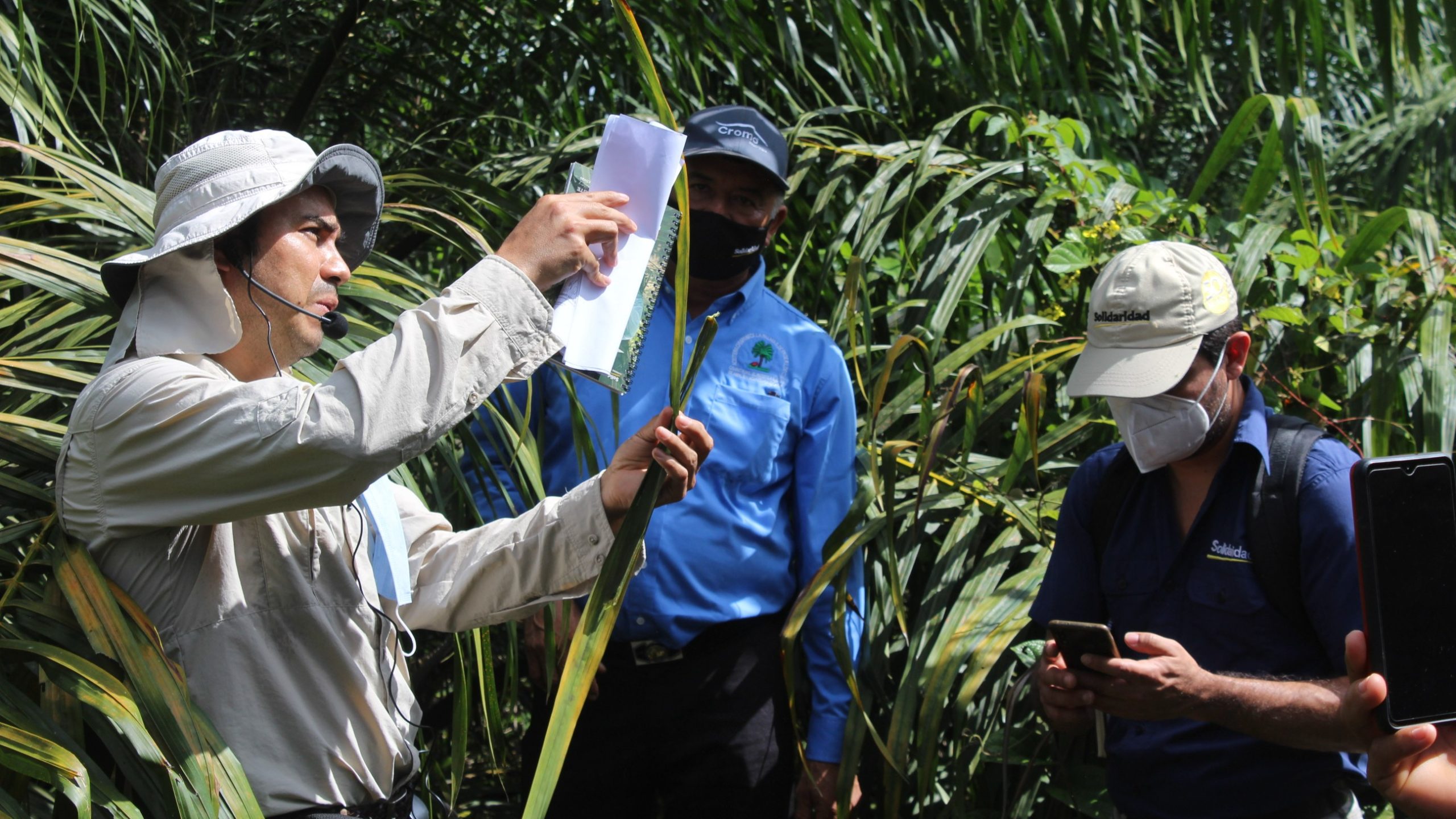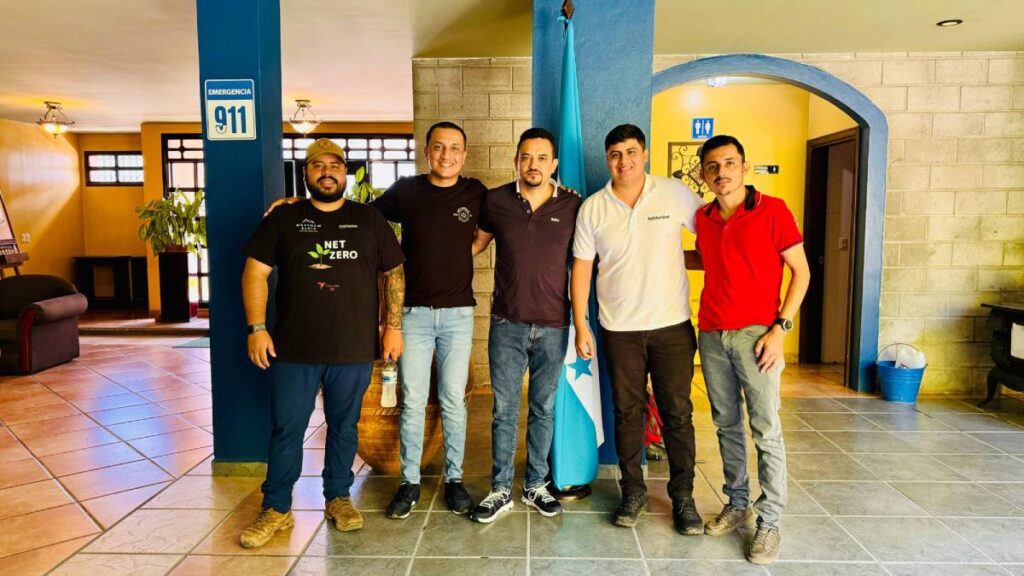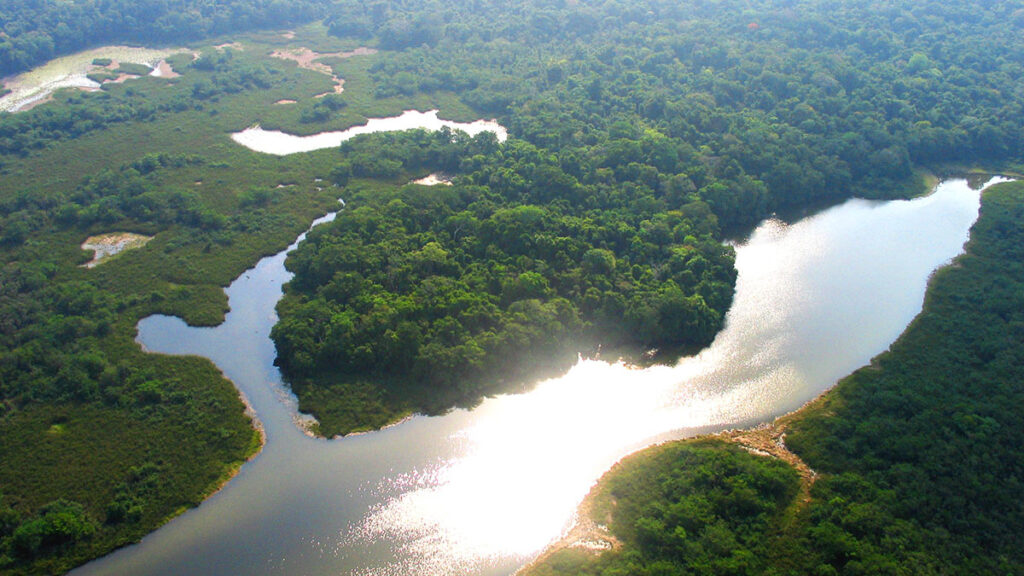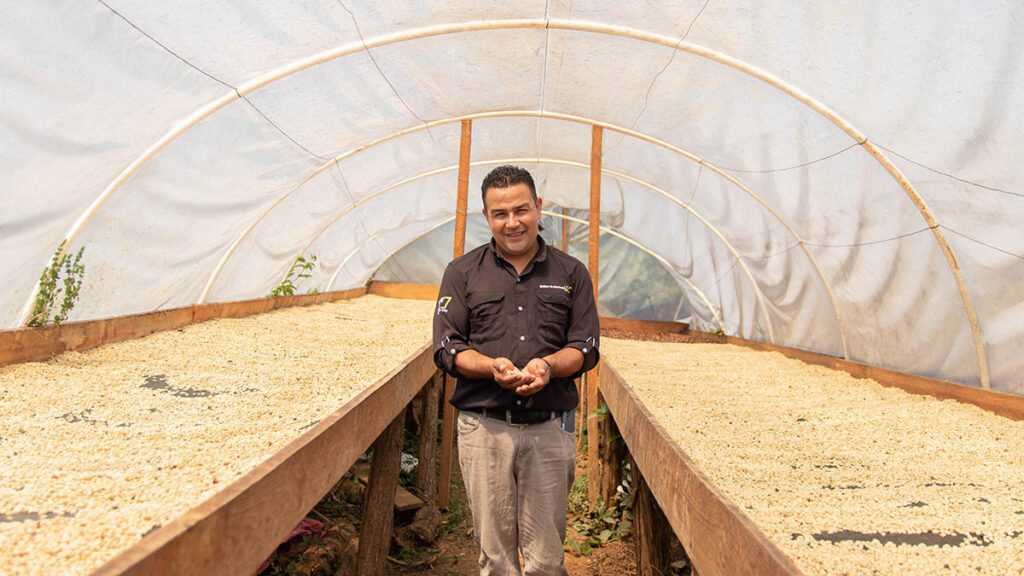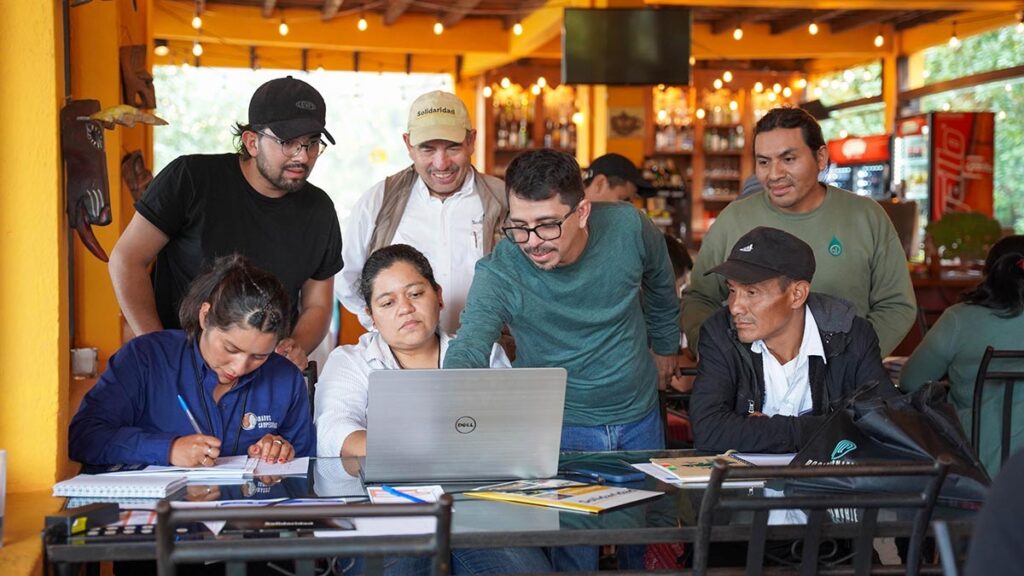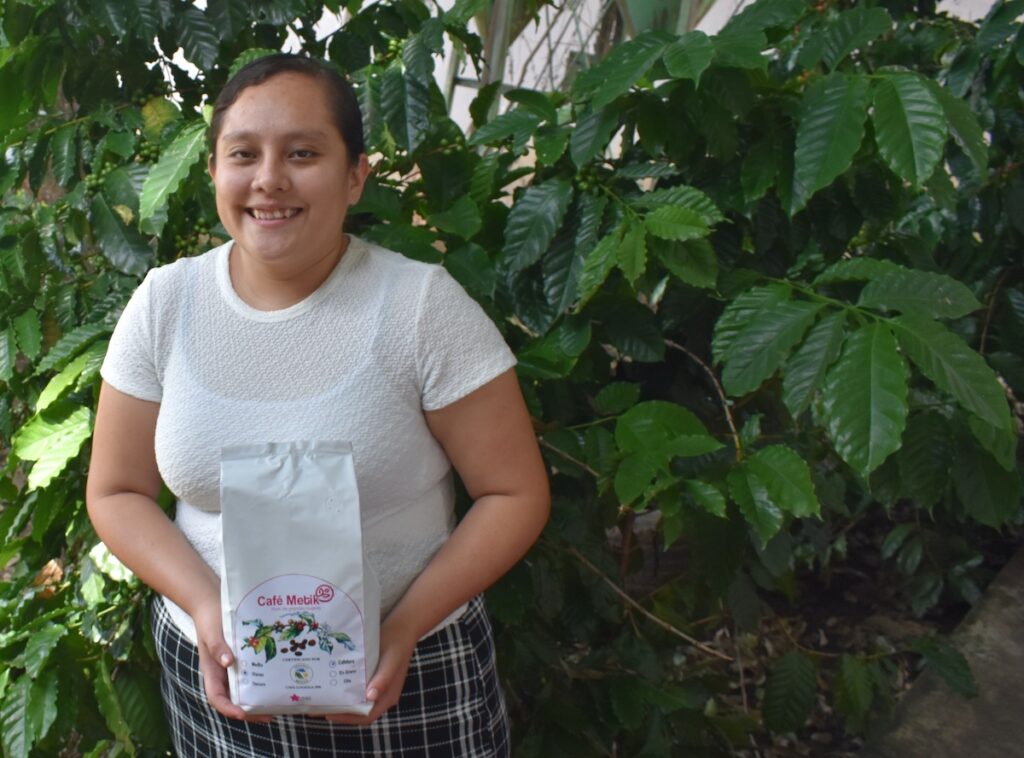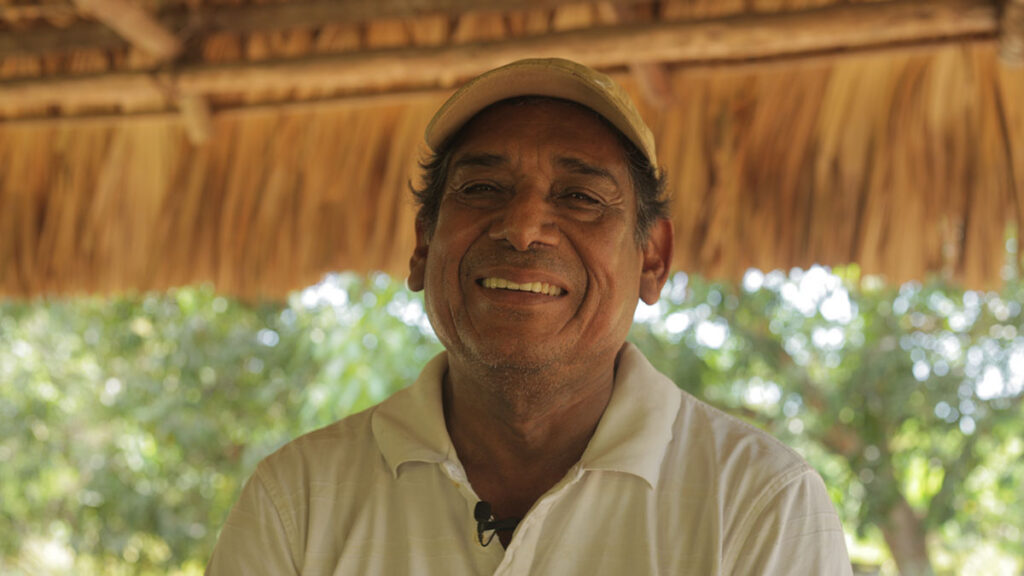Our programmes in Central America, Mexico and the Caribbean incorporate tools and models that facilitate the implementation of good practices. This year, we continued working on the development, testing, and implementation of more than 30 tools and models in consortium with public and private partners. We work with farmers, workers and private sector technicians in the field to improve practices through farmer field schools, workshops, learning exchanges and other inclusive education initiatives.
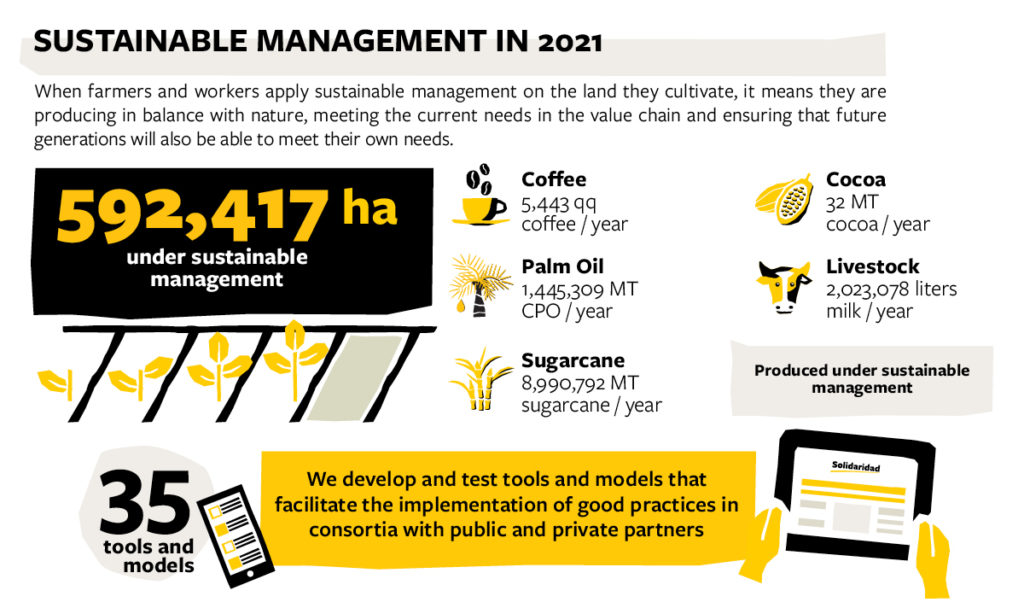
We found that in 2021, there are over 592,000 hectares in the Central American and Mexico region. More than 28,500 farmers are demonstrably implementing sustainability practices that contribute to the conservation of the planet and people, as a result of the work in good practices that Solidaridad staff and partners performed with them on the field.
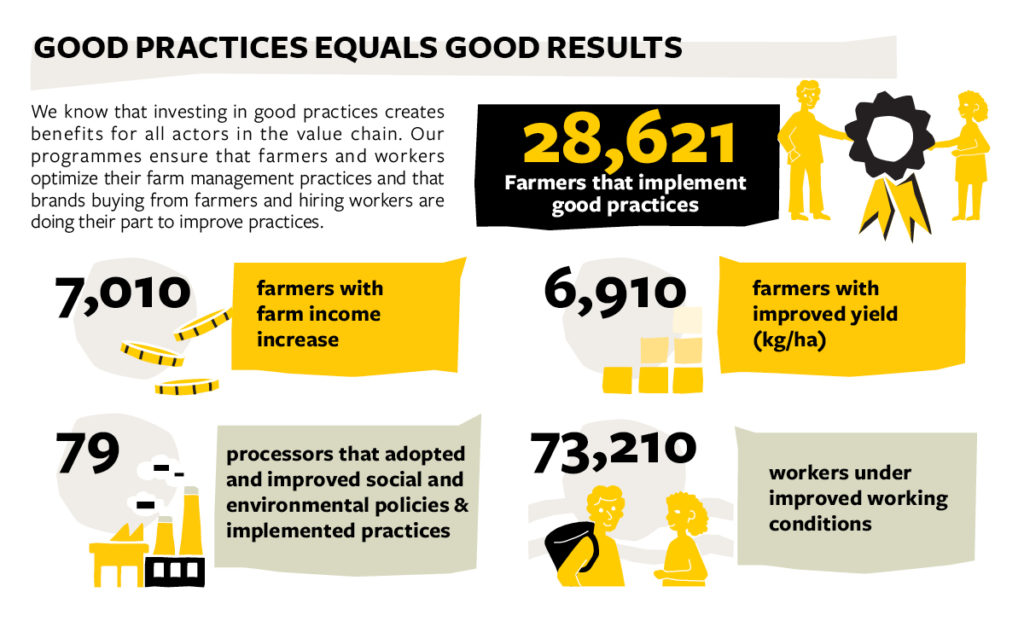
In 2021, more than 7,000 producers in the region increased their farm income and more than 6,900 increased their production from implementing good practices.
The employers of more than 73,000 workers in factories, mills or farms made demonstrable improvements in working conditions in at least one of these three categories: wages and work hours; health and safety; and management systems, from standards set forth at the national, international or company level. Also in 2021, 79 agro-industrial processors in coffee, palm oil and sugarcane applied improved social and environmental policies by applying standards such as responsible recruitment, zero deforestation, RSPO, BONSUCRO, Fair Trade, among others, as a result of working with Solidaridad.
Scaling after a successful sugarcane smallholder pilot in Mexico
Piloting concluded for the Improvement in Productivity and Labor Conditions for Workers of Sugarcane Producers (MAS-CAÑA) programme, launched in October 2018. This programme trains farmers, workers and technicians in good agricultural practices for sustainable sugarcane.
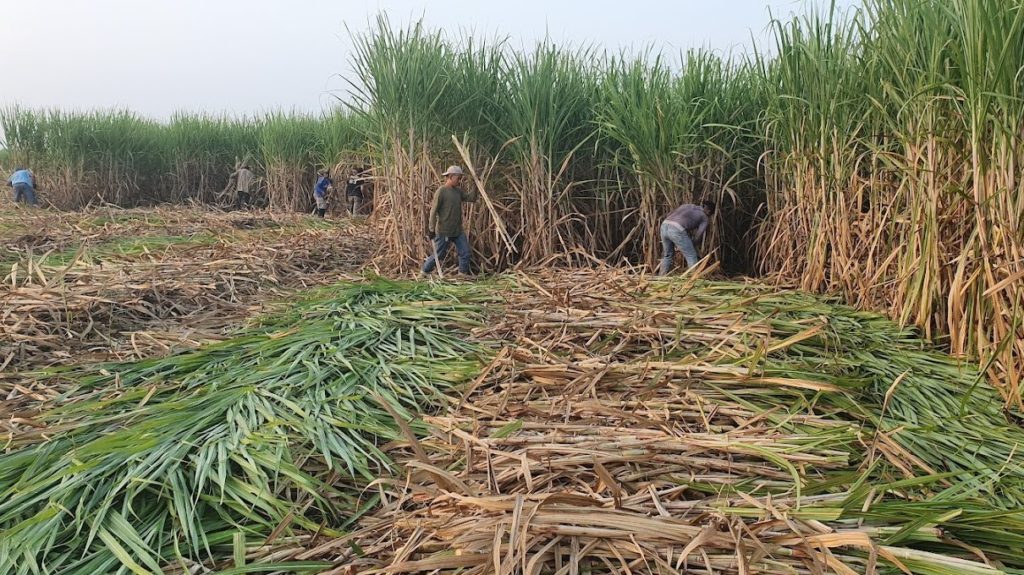
One of the most important MAS-CAÑA achievements is that 1,275 smallholder producers and workers currently adopt and implement good practices in their sugarcane production in the San Luis de Potosí area and are better prepared to address risk from climate change. MAS-CAÑA incorporated more than 5,000 hectares of demonstration plots to model and validate good practices, strengthening the capacities of the participants through a hands-on learning methodology.
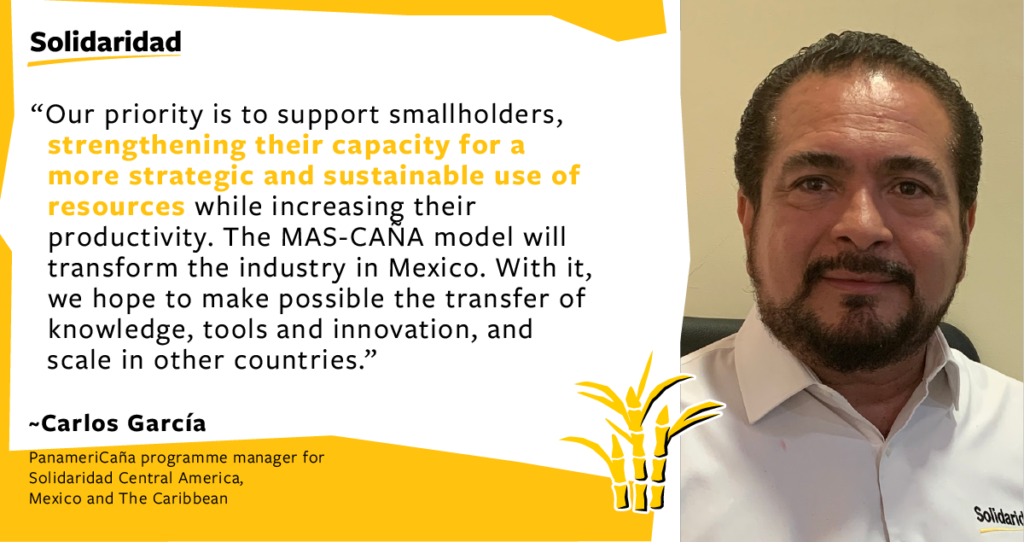
In September, Bayer, Grupo Pantaleon and Solidaridad announced a three-year second phase of the programme. Partners expect that, by the programme’s third year, 3,500 trained producers in the Panuco sugar mill will have between 10 and 20% increased productivity in their crops.
At Bayer we constantly work to understand and effectively meet smallholder needs, and we search for better ways to share knowledge, technology and innovative tools with them that allow better access to agricultural practices that translate into higher productivity and profits.
Manuel Bravo, President and CEO of Bayer in Mexico
The role of digital tools in promoting good practices
The use of digital tools is a cross-cutting theme for Solidaridad programmes, as we believe that access to data can revolutionize farmers’ and workers’ performance in the field. For example, Farm Diary is a digital farm log accessed through mobile devices that allows users to organize and record data for monitoring purposes, so that farmers can make better and more timely decisions. The premise is that these well-informed decisions regarding technical or administrative aspects will increase farm productivity and lower costs. In 2020 and 2021, we tested Farm Diary’s minimum viable product version in palm plantations in Guatemala.
Patty Choc, a technical assistance promoter who supports smallholder palm producers in Ixcán, Guatemala, uses her skills to close technological gaps in her community, as well as communication gaps, serving as a Q’eqchi-Spanish interpreter when necessary. Patty is a key player among the more than 55,000 actors who can drive transformation of the palm sector in the region.
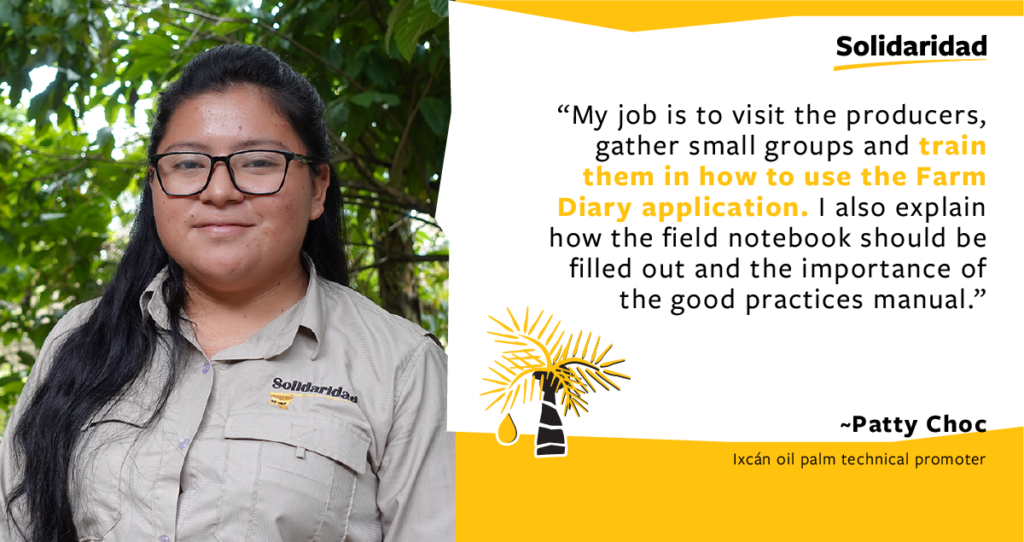
Farm Diary is currently undergoing modifications to also support monitoring in coffee. Combining the use of Farm Diary along with a tool called TRACE, developed by Fairfood, Solidaridad will use technology to pilot a fair value distribution project in the coffee value chain through the Dutch Ministry of Foreign Affairs’ RECLAIM Sustainability! Programme. We officially launched the programme in the Honduran coffee sector, in consortium with Fairfood and local partner Capucas Coffee Cooperative in April 2021. The overarching themes for the pilot project are gender and social inclusion and transparency in the supply chain.
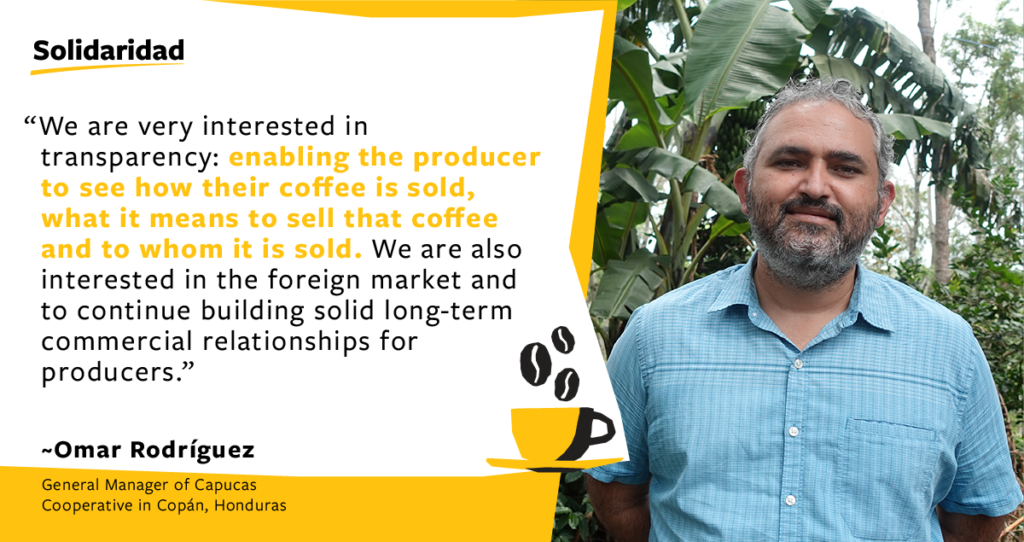
Using good practices on the field to promote carbon sequestration
Also in the coffee sector, in 2021, we signed two new agreements in the region to pilot carbon sequestration projects, stemming from Solidaridad’s previous experiences in climate-smart coffee in Colombia, Peru and Mexico, which left us with valuable lessons learned. In August, Molinos de Honduras partnered with Solidaridad to create and execute climate change adaptation and mitigation strategies in coffee farms. The flagship programme of the agreement will pilot carbon footprint assessment with the support of digital solutions Cool Farm Tool and FARM-TRACE.
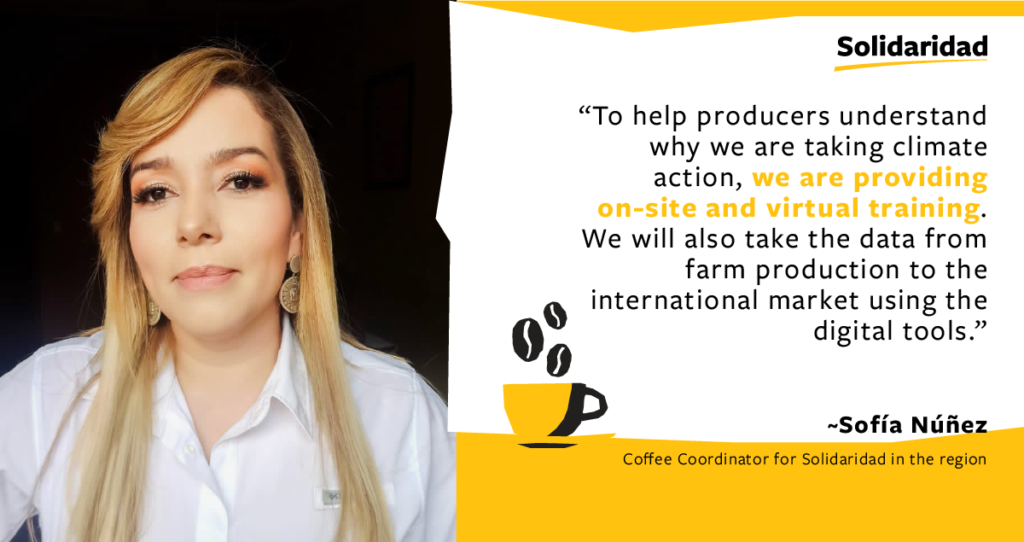
Fundación Aldea from Nicaragua signed an agreement with Solidaridad on October 22, to replicate successful Solidaridad pilots that have provided the proof of concept to make carbon markets work for small coffee farmers. By December, we had completed the first stage of the project, in which we collected information from 1000 coffee plots. The data was analyzed and then converted into carbon removal units, so that in the next step the units can be monetized through carbon sales contracts by Rabobank.
Through the sale of carbon credits generated by agroforestry systems, coffee producers participating in the project will obtain additional income, which will allow them to make investments in their farms to be better prepared for reductions in international coffee prices and the effects of climate change.
María Durán, Programme manager and country representative in Nicaragua
Good hiring and environmental practices through the RSPO P&C
Through our good practices programme we also strive to make sure the brands smallholders sell their products to and work with are also doing their part to improve hiring practices and protect the environment by reducing pollution. In Honduras, we launched our RECLAIM Sustainability! decent work programme in the palm sector in May of 2021.
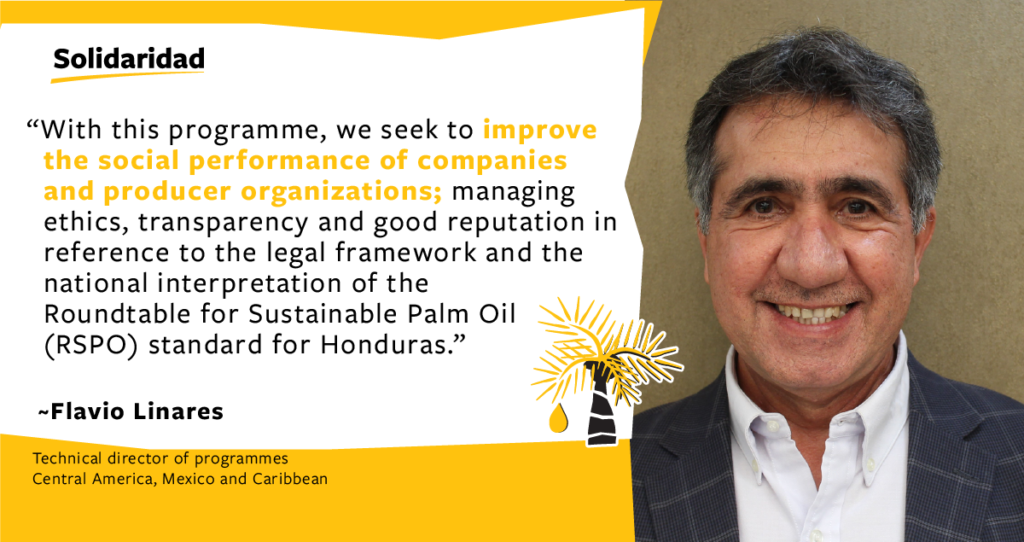
Also, the national interpretations of the RSPO Principles & Criteria, which measure the applied practices towards producer prosperity, human rights and conservation efforts, gained approval in Guatemala, Honduras and Nicaragua in 2021. This means the sector actors in each country have access to an international standard that is also in compliance with their local law framework and that has been reviewed by multiple stakeholders in civil society, the palm sector and the private and public sectors.

